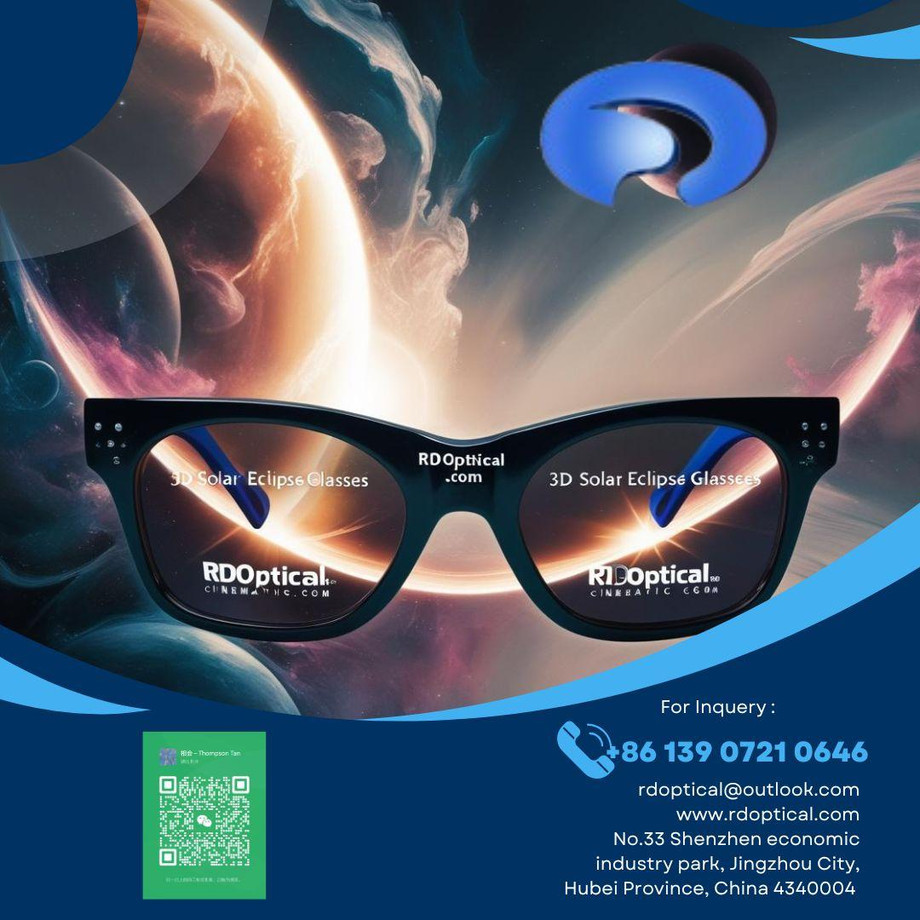Watching a solar eclipse is a breathtaking experience, but it also comes with serious risks if not done safely. Many people mistakenly believe that regular sunglasses provide enough protection for viewing a solar eclipse. However, this is far from the truth. Let’s explore the key differences between solar eclipse glasses and regular sunglasses to understand why ISO-certified solar eclipse glasses are essential.
1. Protection Level
Solar Eclipse Glasses: Specifically designed to block harmful ultraviolet (UV), infrared (IR), and intense visible light. These glasses allow only 0.00032% of sunlight to pass through, ensuring complete eye protection. They comply with ISO 12312-2 safety standards, which guarantee their effectiveness for direct solar observation.
Regular Sunglasses: Even the darkest sunglasses block only around 75-90% of visible light and do not filter out harmful infrared rays. They are not designed for direct sun viewing and can cause severe eye damage when used for eclipse watching.
2. Risk of Eye Damage
Looking directly at the sun without proper protection can lead to solar retinopathy, a condition that causes permanent damage to the retina.
-
Solar Eclipse Glasses prevent this by significantly reducing the intensity of sunlight.
-
Regular Sunglasses fail to block enough harmful light, allowing dangerous radiation to reach and burn the retinal tissue.
3. Lens Material & Build
Solar Eclipse Glasses: Made with special black polymer or silver-coated film that effectively filters out harmful light rays. These materials are highly durable and tested for safe solar observation.
Regular Sunglasses: Typically made of tinted glass or plastic, which lacks the necessary filtering properties to protect against direct solar radiation.
4. Certification & Safety Standards
Solar Eclipse Glasses: Must comply with ISO 12312-2 certification, ensuring they meet international safety requirements for eclipse viewing. Certified glasses will have markings or labels verifying their compliance.
Regular Sunglasses: Do not meet any standard for solar observation. Even sunglasses with UV protection are unsafe for direct sun viewing.
5. Availability & Cost
Solar Eclipse Glasses: Available from specialized manufacturers like RD Optical (rdoptical.com), ensuring high-quality, ISO-certified protection at an affordable price.
Regular Sunglasses: While widely available, they are not suitable for eclipse viewing and should never be used as a substitute for proper eye protection.
Conclusion: Choose Safety Over Risk
To safely enjoy a solar eclipse, ISO-certified solar eclipse glasses are the only reliable choice. Regular sunglasses, no matter how dark, do not offer sufficient protection and can lead to severe eye damage. Ensure your safety by purchasing high-quality eclipse glasses from trusted sources like RD Optical (rdoptical.com) and experience the wonder of the cosmos without compromising your vision.

Comments
Post a Comment